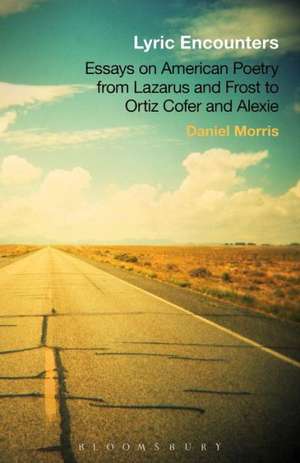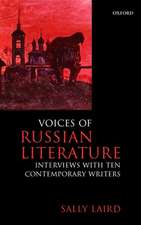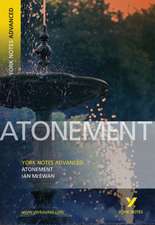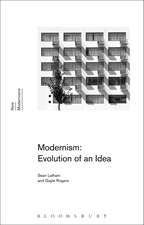Lyric Encounters: Essays on American Poetry From Lazarus and Frost to Ortiz Cofer and Alexie
Autor Professor Daniel Morrisen Limba Engleză Paperback – 17 iul 2013
| Toate formatele și edițiile | Preț | Express |
|---|---|---|
| Paperback (1) | 190.96 lei 6-8 săpt. | |
| Bloomsbury Publishing – 17 iul 2013 | 190.96 lei 6-8 săpt. | |
| Hardback (1) | 715.34 lei 6-8 săpt. | |
| Bloomsbury Publishing – 17 iul 2013 | 715.34 lei 6-8 săpt. |
Preț: 190.96 lei
Preț vechi: 222.32 lei
-14% Nou
Puncte Express: 286
Preț estimativ în valută:
36.54€ • 39.82$ • 30.79£
36.54€ • 39.82$ • 30.79£
Carte tipărită la comandă
Livrare economică 23 aprilie-07 mai
Preluare comenzi: 021 569.72.76
Specificații
ISBN-13: 9781441151568
ISBN-10: 1441151567
Pagini: 240
Dimensiuni: 138 x 216 x 18 mm
Greutate: 0.32 kg
Ediția:New.
Editura: Bloomsbury Publishing
Colecția Bloomsbury Academic
Locul publicării:New York, United States
ISBN-10: 1441151567
Pagini: 240
Dimensiuni: 138 x 216 x 18 mm
Greutate: 0.32 kg
Ediția:New.
Editura: Bloomsbury Publishing
Colecția Bloomsbury Academic
Locul publicării:New York, United States
Caracteristici
Ranges from classic authors (Frost, Williams, Hughes, Ginzburg) to emerging voices (Ortiz, Alexie)
Notă biografică
Daniel Morris is Professor of English at Purdue University, USA. He is author of The Writings of William Carlos Williams: Publicity for the Self (University of Missouri Press, 1995), Remarkable Modernisms: Contemporary American Authors on Modern Art (University of Massachusetts Press, 2002), The Poetry of Louise Glück: A Thematic Introduction (University of Missouri Press, 2006), and After Weegee: Essays on Contemporary Jewish American Photographers (Syracuse University Press, 2011). He has also published two volumes of poetry, Bryce Passage (Marsh Hawk Press, 2004) and If Not for the Courage (Marsh Hawk, 2010). He is coeditor of Shofar: An Interdisciplinary Journal of Jewish Studies.
Cuprins
Chapter 1: IntroductionChapter 2: "Go Home And Write A Page Tonight": Subversive Irony and Resistant Reading in Langston Hughes's "Theme For English B"Chapter 3: The Erotics of Close Reading: Williams, Demuth, and "The Crimson Cyclamen" Chapter 4: Queering Time: Allen Ginsberg, "America," and the Cold War Chapter 5: Active and Passive Citizenship in Emma Lazarus's "The New Colossus" and Judith Ortiz Cofer's "The Latin Deli: An Ars Poetica" Chapter 6: Homosocial Black Male Desire As Mediated Through the Horn and the Pen: Elegy as Love Letter or Love Letter as Elegy in Michael S. Harper's "Dear John, Dear Coltrane"Chapter 7: Frank Bidart's Voice and the Erasure of Jewish Difference in "Ellen West"Chapter 8: "The Word Gets Around": Leslie Marmon Silko's Theory of Narrative Survival in The Delicacy and Strength of Lace Chapter 9: Before and After the Fall: Tribalism, Individualism, and Multicultural Poetics in Sherman AlexieChapter 10: Coda: Robert Frost's "Mending Wall": The Case for the Humanities Classroom Works Cited Index
Recenzii
Featuring a fine variety of modern and contemporary U.S. poets from diverse ethnic/racial backgrounds and aesthetic camps, Daniel Morris' Lyric Encounters lucidly answers Bakhtin's call for a fully dialogic criticism as it fashions a marvelously nuanced account of how poems speak to each other and how poets address particular audiences. At times-for example, in the evolution of Sherman Alexie's ideological stance from early to mid-career-dialogues within texts reflect transformative dialogues within the poets themselves. Morris historicizes modern poetic chestnuts like Emma Lazarus' 'The New Colossus' (provocatively paired with Judith Ortiz Cofer's multicultural 'revision'), Langston Hughes' 'Theme for English B,' and Robert Frost's 'Mending Wall' in such unexpected ways that potent new social and aesthetic significance virtually leaps out of them. Especially salient surprises include Morris' use of Queer Theory as a tool to unearth the psychological intricacies of William Carlos Williams and Michael Harper's deployment of Modernist collage strategies and the critic's reading of Allen Ginsberg's 'America,' not solely as an artifact of 'Beat' rebellion, but as evidence of deeply conformist impulses. Morris' superb blend of contextual and close reading provides a highly fruitful avenue for cultural criticism and pedagogy, and it demonstrates poetry's continued vitality and relevance.
In Lyric Encounters, Daniel Morris offers a stirring and enlightening tour through recent American poetry, along with a look back at some of its modernist precursors. With a perspective both properly skeptical and properly enthusiastic, he brings fine scholarly work to bear on his readings of poets as divergent as Ginsberg, Alexie, Bidart, and Hughes.
This brilliant series of essays makes a compelling case for the pedagogical value of modern and contemporary American lyric poetry. In exploring how lyric poems enact dialogue, between lyric speakers and their interlocutors, and between poems and other cultural texts, Morris articulates a cogent defense of lyric poetry for the twenty-first century. Informed by poststructuralist and queer theories of identity as well as a rich knowledge of poetry's engagement with mass culture, music, and the visual arts, this book renews our appreciation of lyric poetry through lucid and engaging reconsiderations of culturally diverse U.S. poets.
In Lyric Encounters, Daniel Morris offers a stirring and enlightening tour through recent American poetry, along with a look back at some of its modernist precursors. With a perspective both properly skeptical and properly enthusiastic, he brings fine scholarly work to bear on his readings of poets as divergent as Ginsberg, Alexie, Bidart, and Hughes.
This brilliant series of essays makes a compelling case for the pedagogical value of modern and contemporary American lyric poetry. In exploring how lyric poems enact dialogue, between lyric speakers and their interlocutors, and between poems and other cultural texts, Morris articulates a cogent defense of lyric poetry for the twenty-first century. Informed by poststructuralist and queer theories of identity as well as a rich knowledge of poetry's engagement with mass culture, music, and the visual arts, this book renews our appreciation of lyric poetry through lucid and engaging reconsiderations of culturally diverse U.S. poets.















